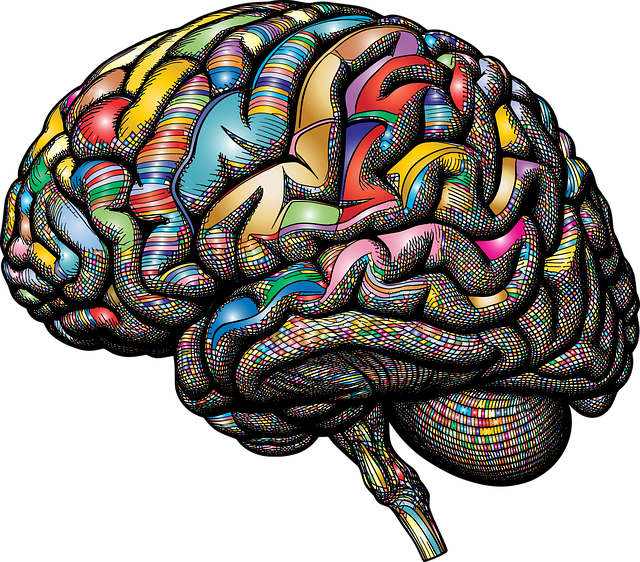Emotional Intelligence (EI) is a powerful tool for healing among adults who have survived sexual abuse, aiding them in managing emotions and processing traumatic memories effectively. Specialized therapy, including CBT and EMDR, along with community support programs, equips survivors with the necessary tools to overcome mental health issues like anxiety, depression, and PTSD. Building resilience through therapy enhances self-awareness, fostering personal growth and allowing survivors to reclaim their lives. Empathy development is key for healthcare providers to connect with patients and prevent burnout in high-stress environments, while tailored therapeutic approaches and cultural sensitivity ensure effective support for diverse survivors of sexual abuse.
Emotional intelligence (EI) is a powerful tool for healing, especially among adults who have experienced sexual abuse. This article explores the profound impact of EI on this vulnerable group, delving into the challenges they face with emotional regulation and offering practical strategies to build resilience and self-awareness. We discuss therapeutic approaches tailored to enhance EI in survivors’ lives, providing hope and guidance for a more fulfilling future. Understanding and cultivating EI can significantly support those navigating the aftermath of sexual abuse.
- Understanding Emotional Intelligence and its Impact on Healing
- The Challenges of Emotional Regulation for Adult Survivors of Sexual Abuse
- Strategies to Build Resilience and Self-Awareness
- Therapeutic Approaches to Enhance Emotional Intelligence in Survivors' Lives
Understanding Emotional Intelligence and its Impact on Healing

Emotional intelligence (EI) refers to one’s ability to recognize, understand, and manage their own emotions, as well as empathize with others’ feelings. For adults who have survived sexual abuse, developing EI can be a powerful tool for healing. By cultivating emotional awareness, survivors can gain profound insights into their experiences and the impact they’ve had on their mental health. This process enables them to process traumatic memories more effectively and develop healthier coping mechanisms, such as anxiety relief through mindfulness meditation practices.
EI plays a significant role in therapy for adults who have experienced sexual abuse by enhancing the therapeutic relationship and facilitating personal growth. Through increased self-awareness, survivors can begin to understand their emotional triggers and develop strategies for managing them. This, in turn, supports the development of a robust self-care routine that prioritizes better mental health. By integrating EI into their healing journey, survivors can navigate the complexities of their past with greater resilience and move towards a more fulfilling future.
The Challenges of Emotional Regulation for Adult Survivors of Sexual Abuse

Adult survivors of sexual abuse often face significant challenges when it comes to emotional regulation. The trauma they have experienced can lead to complex and intense emotions that are difficult to manage, resulting in a range of mental health issues such as anxiety, depression, and post-traumatic stress disorder (PTSD). Without proper support, these individuals may struggle to function daily, leading to further isolation and social withdrawal.
Therapy for adults sexual abuse survivors plays a pivotal role in addressing these challenges. Through specialized treatments like cognitive behavioural therapy (CBT) and eye movement desensitization and reprocessing (EMDR), survivors can learn effective emotional healing processes. Community outreach program implementations that offer support groups and safe spaces are also beneficial, fostering a sense of belonging and enabling self-esteem improvement. These initiatives contribute to the overall resilience and well-being of affected individuals, helping them reclaim their lives and find solace.
Strategies to Build Resilience and Self-Awareness

Building resilience and self-awareness are key components of emotional intelligence development. For adults who have experienced sexual abuse in their past, these strategies become even more vital for healing and personal growth. Therapy can offer a safe space to process traumatic experiences and develop coping mechanisms that foster both resilience and self-awareness. Through therapy, survivors can learn to identify and understand their emotions, recognize triggers, and develop healthy responses to challenging situations.
Empathy building strategies are also crucial. By practicing active listening and cultivating a deeper understanding of others’ perspectives, individuals can enhance their emotional intelligence. This is particularly beneficial for healthcare providers who often deal with high-stress environments, such as Burnout Prevention Strategies for Healthcare Providers. Developing strong self-awareness and empathy skills allows professionals to better connect with patients, offer compassionate care, and maintain their well-being in the face of demanding circumstances.
Therapeutic Approaches to Enhance Emotional Intelligence in Survivors' Lives

Many survivors of sexual abuse struggle with emotional intelligence (EI) as a result of their traumatic experiences. Therapeutic approaches tailored to this specific population can significantly enhance their ability to understand and manage emotions, both within themselves and in relationships. One effective method is trauma-focused therapy, which helps individuals process and make sense of their traumatic memories while teaching them coping mechanisms to regulate emotional responses.
Incorporating cultural sensitivity in mental healthcare practice is vital for these survivors. Therapists should be trained to understand the unique cultural backgrounds and potential additional traumas that patients may have experienced, ensuring a safe and supportive environment. Moreover, burnout prevention strategies for healthcare providers are essential as working with sensitive cases can lead to professional exhaustion. By implementing self-care practices and fostering a community of support, therapists can maintain their own emotional well-being, thereby better serving their clients.
Emotional intelligence building is a vital step towards healing for adults who have experienced sexual abuse. By understanding and regulating emotions, survivors can enhance their resilience and overall well-being. The therapeutic approaches discussed in this article offer powerful tools to navigate the challenges of emotional regulation. With dedicated strategies and support, individuals can transform their lives, fostering a sense of empowerment and recovery in their journey towards healing. For adults seeking therapy for sexual abuse survival, cultivating emotional intelligence is a transformative process that enables them to reclaim their power and live fulfilling lives.








